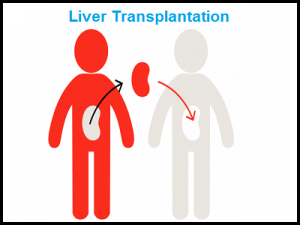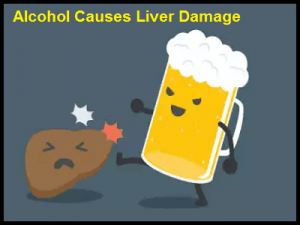The liver is one of the most important organs and constitutes the biggest organ in the body. Its size also talks about its important role and its necessary for constant blood supply. The liver’s reddish color owes itself to its immense blood supply, as there are a host of arteries that supply blood to it. Essentially, the liver aids in the digestion of food and cuts down big food particles into smaller ones. The liver produces bile juice that helps in digestion and helps to save vitamins, fats, proteins, and minerals.

Importantly, the liver aids in blood clotting and eliminates poisonous substances present in the body. Damage to the liver and its bleeding may result in the death of the affected. The liver is expressed as the chemical factory of the body. Its unique characteristic is its capacity to renew its cells, which is different from the only liver. In present times, new and innovative methods and systems have enhanced the liver’s condition and performance. Even the severely diseased and affected livers have been receiving effective treatments.
What causes liver damage?
Over intake of drink and high-fat meals, failure of blood pressure, taking medicines without proper prescript, suffering from Hepatitis and hereditary diseases, cancer and sedentary lifestyle, non-practice of safe coitus, following no protection during blood transfer, and using the same needle by many users may all accumulate to cause liver infection and disease.

Signs & Symptoms are not clear at the early stages
It is extremely challenging to recognize liver disorders, which leads to a situation where people are unaware of liver problems until it is too delayed. This is due to the liver’s capacity to fight diseases and replicate cells to stay strong. There is no pain or irregularity of the liver until the situation becomes critical. The symptoms of an infected liver involve vomiting blood, swollen feet, and a lower count of white blood cells is also observed. At this stage, proper medication can assure the health of the liver. However, through the course of therapy, if regressive habits are continued, the condition of the liver will deteriorate further, with no scope for improvement.
Tests and diagnosis to know the health of the liver include Liver Function Test (LFT), CT Scan, Endoscopy, and blood tests.
What are the methods for liver diseases?
The procedure depends on the stage of liver disease. If the liver is totally unhealthy and incapable to carry out its functions, the only transplantation is the way out.
What is the need for transplants?
Non-function of various organs of the body like heart, lungs, and kidneys would result in critical consequences for the body. This becomes all the more relevant, as no one organ can work like the other. The liver does almost 500 various roles and no organ can replace it. If the liver failures, there is no way but to transplant a healthy one for the diseased. However, the success of liver transplantation depends very on the availability of the donor, and the harmony of the donor’s liver.
Unique features of the liver
The liver is the only organ in the body that can help itself to grow. Not just 25 percent, but the whole liver can be re-made effectively. However, the health of the liver cannot be a subject of avoiding. Before the liver’s working situation goes from poor to more critical, efforts should be made to enhance the liver’s health. Even when 70 percent of the liver is diseased or destroyed, still liver continues to work. The liver is the only organ that can long for an individual’s lifetime.
Normally, 20 – 25 percent of the liver is removed from the healthy relative donor and transplanted to the receiver. Because of the liver’s strong regenerative ability, the liver re-grows in the donor and the receiver.
Where should one avail liver transplantation?
Hospitals which have the latest equipment and adhere to innovative systems are most proper for liver transplantations. Liver transplantation is a difficult process that demands the experience and expertise of transplant surgeons, aestheticians, hematologists, and trained staff. Infrastructure facilities should enter operation theatre, ICU, liver intense care unit, blood bank, and advanced lab for early diagnostics. Only hospitals with Experienced surgeons and excellent infrastructure can assure success for each liver transplantation.
Protect your liver
The food and drinks we take, and our exercise regimen are very necessary for the liver’s health. Needful runs should be used to keep the liver healthy. Some signs of liver diseases include loss of appetite and indigestion, changes in the sugar levels of the blood, allergy, and psoriasis. The liver can be protected by avoiding drink, doing regular exercise, taking healthy food and practicing safe coitus.
